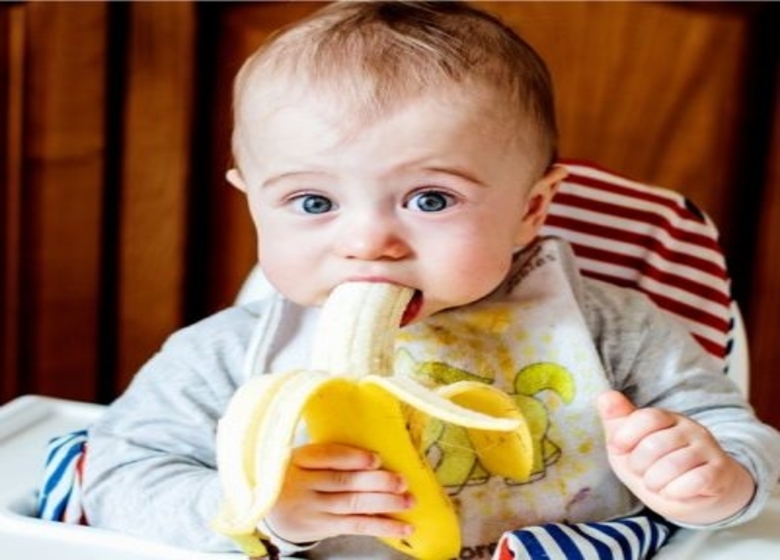Banana Allergy in Babies
Bananas are a favorite fruit. They make a healthy snack, they’re great for breakfast and in smoothies they’re delicious. Most people think bananas are one of the first solid foods that a baby can feed. Some people may want to completely avoid bananas, though.
What Is Banana Allergy?
Allergy to bananas is often associated with a latex allergy. This is because some of the latex-producing proteins in the rubber trees are known to cause allergies and are similar to the proteins found in some nuts and fruits, including bananas. This syndrome is known as the syndrome of latex food or allergy to latex-fruit.
Causes Of Banana Allergy In Babies:
Soon after eating a banana, if you see your baby vomiting or having a red rash on his face, it may be due to banana allergy. This could happen because of the following causes:
1. Intolerance Of Protein:
Bananas contain a protein called ‘ chitinase. ‘ The immune system of your baby may be intolerant to this protein and hypersensitive, resulting in an allergic banana reaction.
2. Vasoactive Amines:
There is a substance called ‘ vasoactive amines ‘ in bananas. Similar to histamines, vasoactive amines occur naturally. If the metabolic system of your baby is unable to oxidize enzymes, vasoactive amines can lead to banana allergy in babies.
Symptoms Of Banana Allergy In Babies:
Watch out for the following symptoms of banana allergy in him when feeding your baby for the first time. These symptoms may occur immediately or within a few hours of the fruit being consumed.
1. Symptoms of the gastrointestinal tract:
An allergy to bananas causes a baby to vomit because of different gastrointestinal problems. The remaining symptoms are:
- Diarrhea
- Nausea
- Loose Bowel
- Stomach ache
2. Symptoms of respiratory:
Your baby may have some breathing problems if he has an allergy to bananas, such as –
- Stuffed nose
- A cough
- Wheezing
- A runny nose
- Fainting
- Tightness of chest
3. Skin Problems:
The most common sign of an allergy to bananas are skin symptoms, such as
- Sensation of Itching
- Inflammation of Tongue
- Face Swelling
- Red Bumps
- Hives
- Mouth Inflammation
An allergy to bananas may also cause diaper rashes and eczema, so parents, be alert.
Risk Factors:
Bananas and rubber trees have similar proteins which cause allergies so that people with latex allergies can react to the bananas. They may also react to other foods that have similar components that cause allergies. That’s called cross-reactivity.
Remove bananas from your fruit basket if you notice signs of a latex allergy. For avocados, kiwis, and chestnuts, the same applies. In people with an allergy to latex-fruit, these foods can trigger reactions.
People with allergies to pollen can also often react to certain foods. In older children, adolescents, and adults, this type of reaction usually develops. It is much less common in babies and infants.
Dealing With Banana Allergy In Babies:
As parents, you will undoubtedly worry if your baby is allergic to food. But don’t panic. Here’s how you could handle it.
1. Follow the 3-Day Wait Rule:
Once you have introduced your baby to banana (or any solid food for that matter), wait at least 3 days to see if he has any signs of an allergy. This will let you know which foods are safe and which foods should be avoided for your baby. You can also inform your doctor about your baby’s food in advance so that he or she can diagnose allergic reactions more effectively and with less testing.
2. Other Tips to Deal with an allergy of banana:
If your baby is allergic to bananas, here are a couple of tips you can follow in order to fight this allergy.
- If your baby has only a slight allergic reaction to bananas, every time you feed this fruit, your doctor will suggest you feed your baby with smaller pieces of banana.
- You can start with foods such as steamed carrots instead of introducing bananas as carrots make safe baby food.
- Cooked bananas are much safer than raw bananas, so you can give small pieces of cooked bananas to your baby.
- If your baby has a severe banana allergy, make sure that whatever you buy in the grocery store has zero traces of banana in it, as it can cause cardiovascular complications or extreme swelling of the face.
Treatment Of Banana Allergy In Babies:
An overall antihistamine may be sufficient to counteract immediate symptoms of an allergy, such as itchiness, runny eyes and noses, and hives if you have a mild reaction. Often without any treatment, these symptoms may disappear. After eating bananas, some people may develop anaphylaxis. If your allergy is so severe, your doctor will always prescribe an epinephrine pen (EpiPen) for you to carry with you. And if you suspect your child is reacting to bananas, see your doctor immediately for an allergist reference.
If you notice any mild symptoms on your baby’s face such as hives or a rash, stop feeding him with bananas and contact your doctor. If you notice any symptoms of a severe reaction such as severe diarrhea or vomiting, breathing disturbance, severe wheezing or swelling of the face or lips, call an ambulance immediately and then call your doctor. It should not be taken lightly the allergic reaction of a baby to bananas.
Sometimes, if his mother is allergic to the same, a breastfed baby can also develop an allergic reaction to bananas. So keep your own food allergies in mind so that your baby can be diagnosed better by the doctor.
Also Read: When Should You Introduce Solid Food to Your baby?













